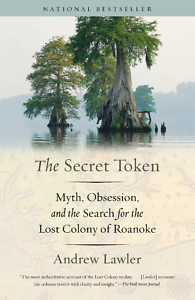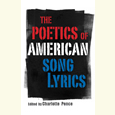Pursuers of the Myth
In The Secret Token, Andrew Lawler excavates the many theories surrounding the vanished colony of Roanoke
In The Secret Token: Myth, Obsession, and The Search for the Lost Colony of Roanoke, Andrew Lawler ironically makes a decent case against getting too curious about the first English settlement in North America. Get too close to the puzzling details of Roanoke — a vanished community, a handful of contradictory clues, a cast of eccentric characters making inexplicable decisions — and you might just find yourself sucked into an enigma with no end.

Lawler creates a vibrant portrait of the historical events surrounding the establishment of the Roanoke colony in the Outer Banks region of North Carolina and the colony’s subsequent disappearance. He also illuminates the “gravitational attraction” of this mystery for generations of historians, archaeologists, genealogists, and conspiracists. After more than four centuries, the search for answers about the fate of the vanished settlers continues to lure fresh recruits.
From the start, Lawler presents the story of Roanoke as a “haunting as much as a history.” “To die is tragic,” Lawler writes in his introduction, “but to go missing is to become a legend, a mystery.” Lawler argues that the “delicious dread” Roanoke provokes in us feeds the part of our story-loving psyches that are drawn to unresolved destinies.
As an extension of that fascination, Lawler also positions Roanoke as a potent, emblematic national myth. One purpose of his investigation is to reveal the legacy of the story, not just the events. Such national myths, he writes, “help us get our bearings in each age.” The Roanoke story acts as a touchstone for the cultural landscape surrounding it in any given era.
In the book’s first section, Lawler provides detailed context for the motives and hopes that likely drove 115 middle-class Elizabethan Londoners to brave huge unknowns in order to reach the New World, which at the time was dominated by Spanish colonizers, not English ones. Immune to romanticism about the European explorers, Lawler recounts the series of disastrous blunders the earliest English settlers made toward the Native American communities whose lives they disrupted or destroyed. His descriptions of this 16th-century world are seamless and atmospheric.
 Part Two of The Secret Token focuses on the search for the lost colonists and features an array of figures who are—like the Roanoke mystery itself—vexing and fascinating. For example, the late-19th-century North Carolina politician Hamilton McMillan used the rumor of the Roanoke settlers’ white lineage blended into the local Lumbee tribe as pretext to offer the Lumbee concessions that raised their status above African Americans, thereby securing the tribe’s vote. But McMillan didn’t stop with political maneuvering; the legend hooked him, and he set out to research the truth for himself.
Part Two of The Secret Token focuses on the search for the lost colonists and features an array of figures who are—like the Roanoke mystery itself—vexing and fascinating. For example, the late-19th-century North Carolina politician Hamilton McMillan used the rumor of the Roanoke settlers’ white lineage blended into the local Lumbee tribe as pretext to offer the Lumbee concessions that raised their status above African Americans, thereby securing the tribe’s vote. But McMillan didn’t stop with political maneuvering; the legend hooked him, and he set out to research the truth for himself.
Modern-day Roanoke researchers include engaging figures like the British archaeologist Mark Horton, a scruffy “human Google” determined to discover from evidence in the marshy landscape whether or not the colonists fled to live with the nearby Croatoan tribe.
Acknowledging the evolving place of Roanoke in the larger picture of our world, Lawler concedes that “on a planet with a surfeit of missing people and forgotten refugees, this search feels at best quixotic and at worst perverse.” But stories like McMillan’s underscore the darker elements of racial turmoil that are interwoven through our history, stretching all the way back to those first settlers. Tracking this national origin myth through centuries inevitably raises stark questions about where we stand now.
Like America itself, Roanoke’s myth is by turns grand and maddening, full of loose ends and red herrings. Through lively prose, Lawler succeeds in making this story as irresistible as it is emblematic of our nation’s complex history.

Emily Choate holds an M.F.A. from Sarah Lawrence College. Her fiction has been published in Shenandoah, The Florida Review, Tupelo Quarterly, and The Double Dealer, and her nonfiction has appeared in Yemassee, Late Night Library, and elsewhere. She lives in Nashville, where she’s working on a novel.


